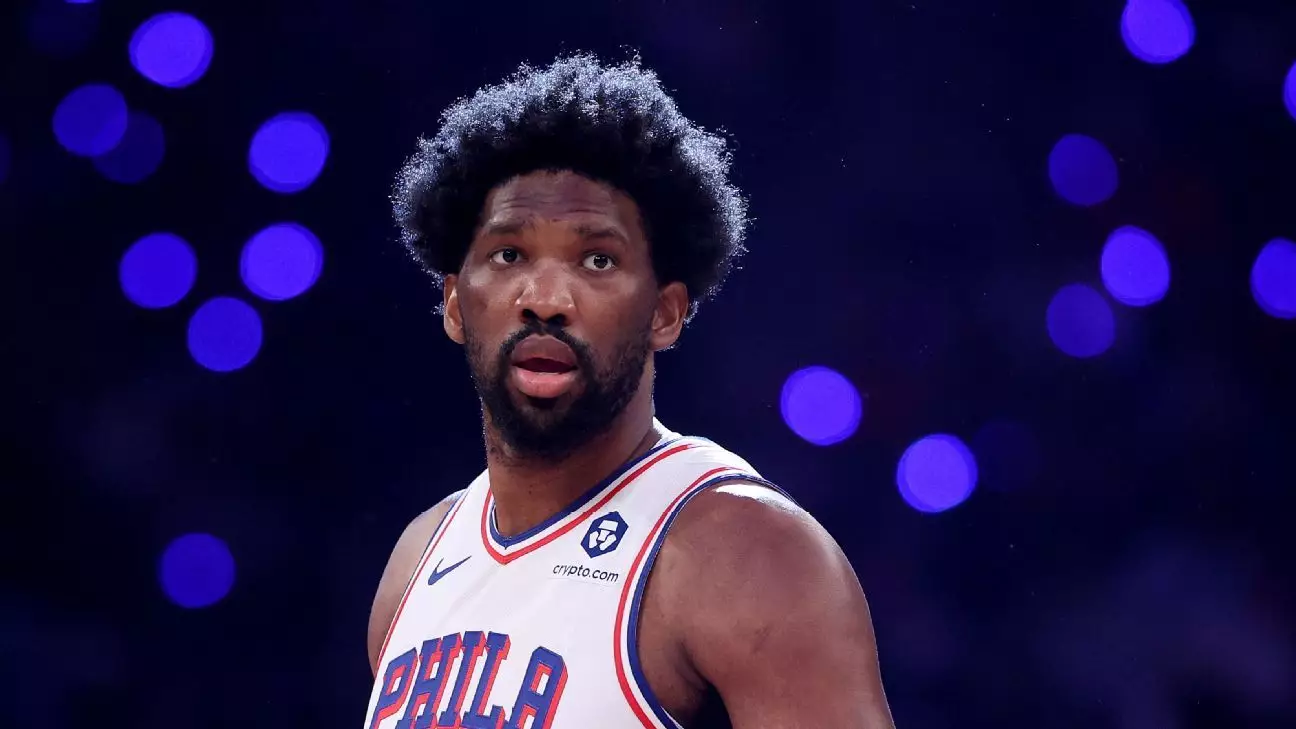In a significant development for the Philadelphia 76ers, star center Joel Embiid has been sidelined for the remainder of the preseason due to ongoing management of a left knee injury. This decision, announced on a recent Sunday, aligns with a cautious approach that aims to preserve Embiid’s long-term health throughout the upcoming NBA season. The 76ers’ management is taking proactive steps rather than waiting for the injury to manifest into a more serious issue, showcasing a strategic mindset that has become increasingly essential in professional sports.
Embiid’s absence from the team’s three-game preseason road trip, which included stops in Iowa and Boston, underscores the severity of the situation. By meeting with medical professionals prior to the trip, it is clear that the organization is prioritizing Embiid’s health and overall performance. The medical evaluation reportedly yielded positive feedback; however, the focus remains on ensuring that his knee functions at its best when the regular season kicks off on October 23 against the formidable Milwaukee Bucks.
Last season, Embiid participated in only one preseason game, and as expectations ran high for his involvement this year, the truth is that his participation would likely have remained limited. The 76ers appear to be accepting that the player’s condition necessitates a careful approach—finding a balance between competitive preparation and safeguarding his well-being. This management trend could perhaps become a common theme in the NBA, where teams have historically prioritized short-term gains over long-term player health.
Looking ahead, Embiid’s significant weight loss—as he has aimed to shed 25 to 30 pounds—highlights his commitment to conditioning to alleviate stress on his knee. These adjustments are not only essential for his personal health but are also critical to the 76ers’ ambitions this season. The franchise generated renewed hope with a productive offseason, acquiring notable talents like Paul George and securing contract extensions for key players such as Tyrese Maxey and Embiid himself. The strategies implemented thus far are indicative of an organization that recognizes the importance of balancing immediate performance with the longevity of their star players.
With a reshaped roster and elevated expectations, the 76ers are poised to make an impact this season, provided that their stars remain healthy. The addition of celebrated figures like George and the retention of contracts for seasoned players such as Kelly Oubre Jr. and Kyle Lowry signal an intense drive for success. However, the absence of Embiid during the preseason raises questions about the team’s adaptability as they navigate these initial games without him.
As the anticipation builds for the season opener against the Bucks, both fans and analysts are eager to see how the 76ers will assemble their on-court chemistry and strategy. Moreover, the way Embiid is managed could set a precedent for how teams navigate the complexities of player welfare in an era where injuries can drastically alter the trajectory of a season. The Philadelphia 76ers face an important balancing act—prioritizing Embiid’s long-term health while simultaneously gearing up for a potentially explosive season.

